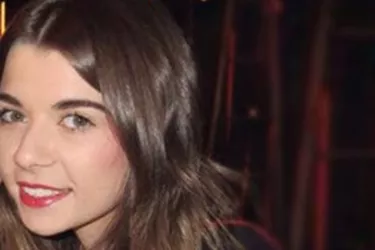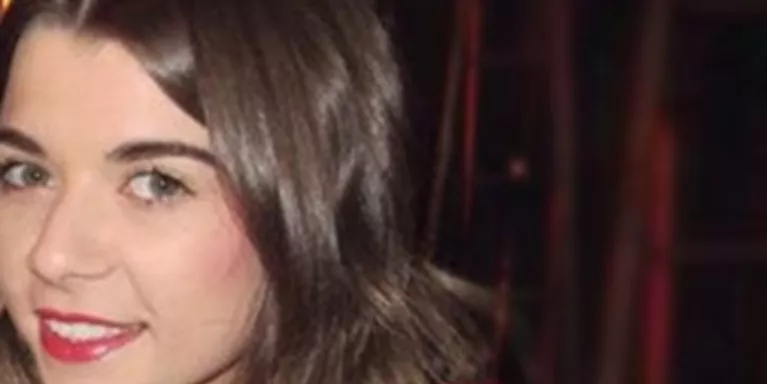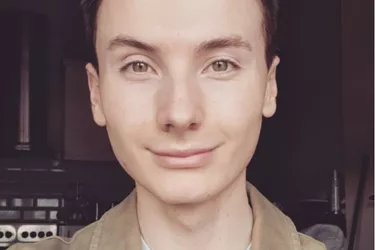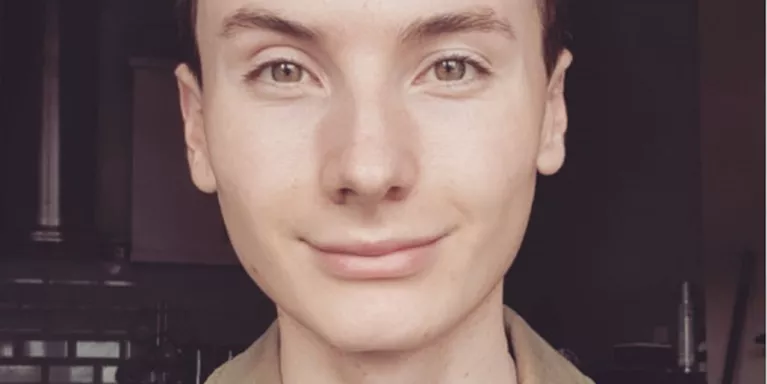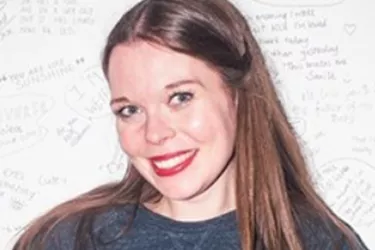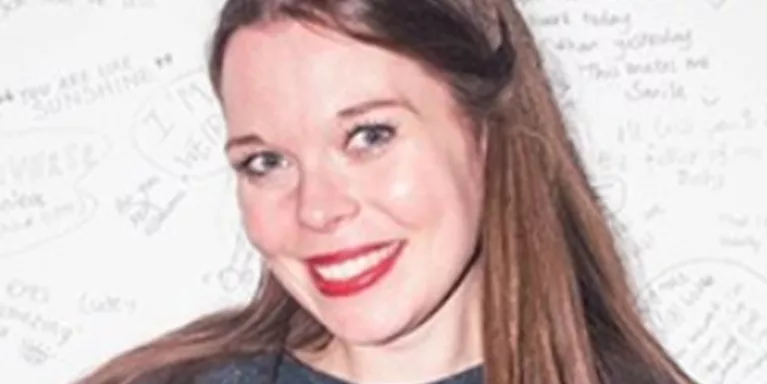Can you be a feminist and have an eating disorder?
Lilith shares her thoughts on how feminism and eating disorders are linked.
In the second part of this blog I wanted to explore further why I chose to wear my mother’s pin badge on my jacket when I went to film with Mind.
The pin badge is a black background with the feminist symbol – a clenched fist and lines forming the symbol for women – in red. My mother was actively involved, personally, politically and academically, in the feminist movement from the late seventies onwards, and bought the pin on a march in London.
However, about an hour ago I met my girlfriend on her lunch break, agonising that I felt like a fraud for writing about these things, for even wearing the badge, whilst my eating disorder thoughts and behaviours were making it so difficult to even eat lunch. She said that would make a good introductory sentence. I’ve come back to the library with a sandwich. I know that I will find, amongst the reasons I put on my mother’s pin badge, a reason to eat it.
When I pinned the badge to my lapel, it was mostly as a reference to how I understand and experience my eating disorder (and other mental health problems) as not just an individual illness, but related to the wider world, and my position in it. When I first began exploring my eating disorder, I secretly ransacked my mum’s academic bookshelf. I pulled Susie Orbach’s ‘Hunger Strike’ out because the political notion of a strike resonated, somewhere.
What has remained with me from reading it was the realisation of how the pressures from society can operate, and in particularly the societal compulsion to simultaneously provide and restrain. And so in stories of my grandmother she would serve meals to her children but eat cottage cheese herself.
When I first looked critically at my eating disordered behaviours I asked myself if I was just buckling under the pressure society put on me, in particular the pressure to look a certain way and behave a certain way around food. If I was stronger person, a 'better' feminist, surely I would be proud of my body at every weight, and eat what my body needed or just what I wanted. This only added to the shame tied into my eating disorder.
"Food serves as a bridge between mind and body; it is a way of looking after ourselves, of self-care, self-soothing and comforting ourselves but also a way of punishing, hurting, protecting and controlling ourselves."
The need to eat, for sustenance, is always going to tie you to the physical world. No matter how much time I spend in my head, in the never ending, sometimes relentless stream of thoughts, no matter how disconnected and dysphoric I feel about my physical presence, no matter those days when my body does not feel like my own and I can feel space between where I am and the tips of my fingers, I am not just a brain, or mind, or soul, that has a body containing it like a jar.
I do not have a body, I am a body. I am my body. I often reach up and touch my mother’s pin to ground myself – a technique that is really useful when I’m feeling disconnected from the moment and I need to practice being present.
The early feminist movement said ‘The personal is political’ – they meant that when we make small choices in our daily life, we are also making bigger statements about what we believe and are endorsing particular societal ways of doing things, or dissenting.
I wore my mother’s pin to acknowledge how hard it can be in reality to match our personal to our political. I am a feminist because I believe that gender operates structurally to create inequality, and that this needs to be proactively addressed. However, there are times when I can’t bear to describe myself as a feminist when I starve myself so my periods stop, throw up my food for fear of gaining weight, and when my brain chemistry generates a male voice that uses demeaning, grotesque, misogynist and violent sexual language and imagery when I am distressed.
"I feel like there is a conflict in me because while I believe without question that every woman is worthy of space, I still feel intensely like I take up too much."
It has only been as I have started to connect with other people about my experiences of eating disorders and mental illness, that I have found that this is a conflict reflected in their own, often very different experiences. Finding a way to bridge this gap, between what I believe and what I feel day-to-day is a crucial step in my own recovery.
Ultimately, I wore my mother’s pin to maintain my connection to her. Caring for me, living with me, seeing me struggling with my eating disorder and other mental health problems, the arrests, a&e trips, scars accumulating on my wrists, it has all hurt her. And there have been times when I have been lost to her. But she has assimilated those hurts, and those losses, and still looks back at me with care, compassion and constancy. And so I wear it as a reminder of her, as well as all it stands for.
I’m writing the ending of this at dinner time. I put on my mother’s pin to do so. I’m hungry, and in fragmented steps backwards and forwards, I’m trying to practice not being ashamed of that.
Watch Lilith talk about their experience of eating problems
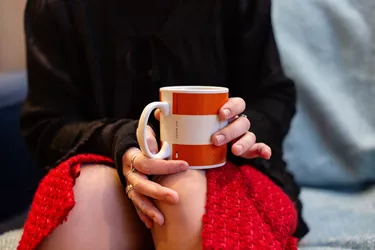

Information and support
When you’re living with a mental health problem, or supporting someone who is, having access to the right information - about a condition, treatment options, or practical issues - is vital. Visit our information pages to find out more.
Share your story with others
Blogs and stories can show that people with mental health problems are cared about, understood and listened to. We can use it to challenge the status quo and change attitudes.










